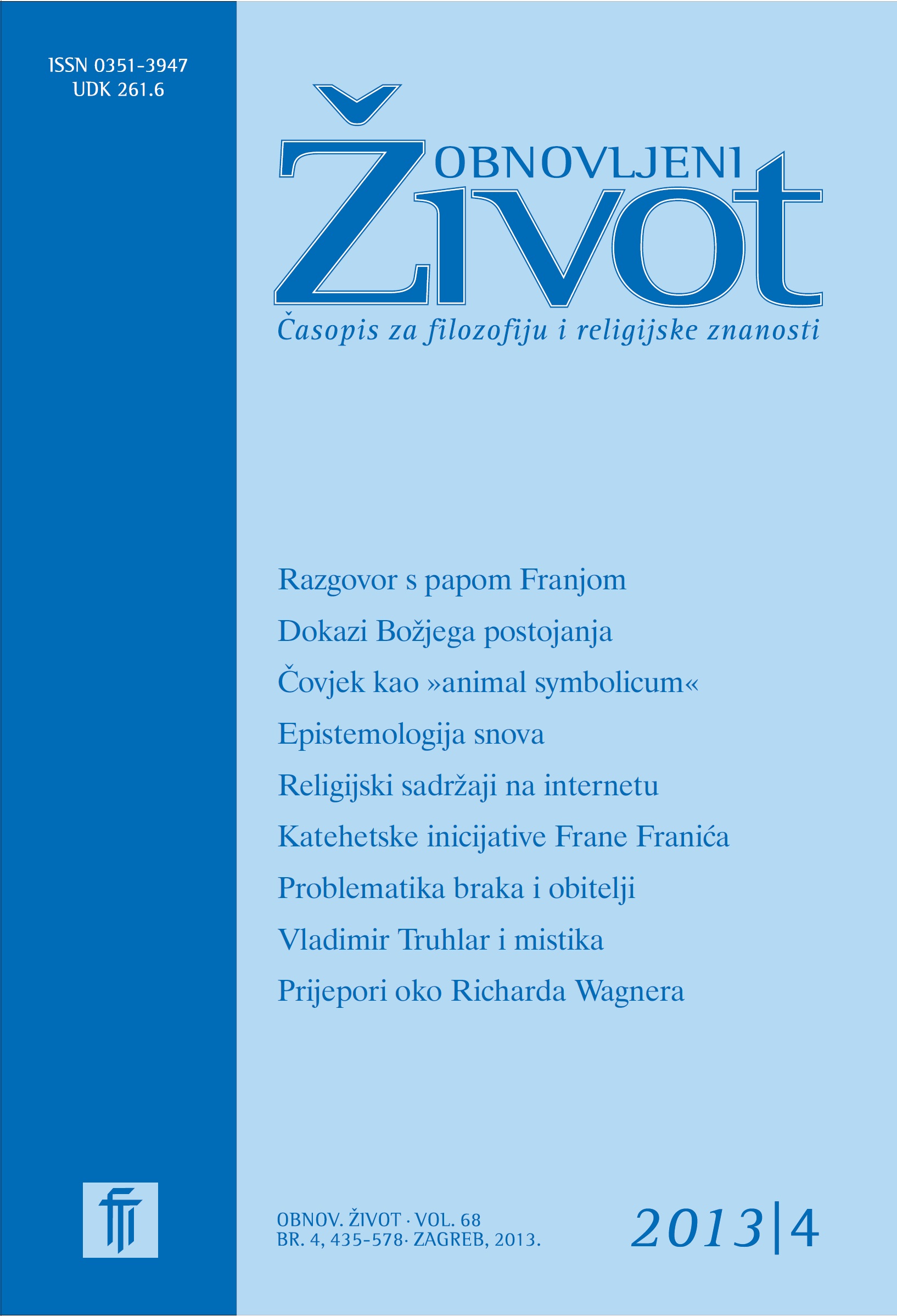Man as »Animal Symbolicum«
Some Aspects of the Philosophical Anthropology of Ernst Cassirer
Keywords:
man, animal symbolicum, symbolic form, culture, identityAbstract
This paper deals with the philosophical thought of Ernst Cassirer and his notion of man as »animal symbolicum« which emanates from his philosophy of symbolic forms. Based on Cassirer’s theory of symbolic forms as the objectivation of the spirit, this paper endeavours to analyse the possibility of determining the identity of the human individual by means of selection and articulation of individual symbolic forms. The question at the outset is the following: is the identity of an individual in fact determined by his choice of individual symbolic forms and by the scope and intensity of their influence? In other words, is the scope within which an individual symbolic form is articulated in an individual human being in fact the measure in which one can determine his identity? In this context the question arises concerning the influence of various other factors such as tradition, social milieu, family, etc. Furthermore, the article examines the issue of the possibility of shaping the identity of an individual through acceptance and articulation of several symbolic forms and their interrelationship in this case, that is the predominance of one over the other. The first and second sections of the article present a portrayal of Cassirer’s theory on man as a symbolic being and his philosophy of culture, while the third section attempts an analysis of the possiblity of determining the identity of a human individual through acceptance and articulation of single symbolic forms or several of the same.
Downloads
Published
Issue
Section
License
Jednom prihvaćeni članak obvezuje autora da ga ne smije objaviti drugdje bez dozvole uredništva, a i tada samo uz bilješku da je objavljen prvi put u Obnovljenom životu. Uredništvo će obavijestiti autora o prihvaćanju ili neprihvaćanju članka za objavljivanje.
Članci objavljeni u časopisu se, uz prikladno navođenje izvora, smiju besplatno koristiti u obrazovne i druge nekomercijalne svrhe.


